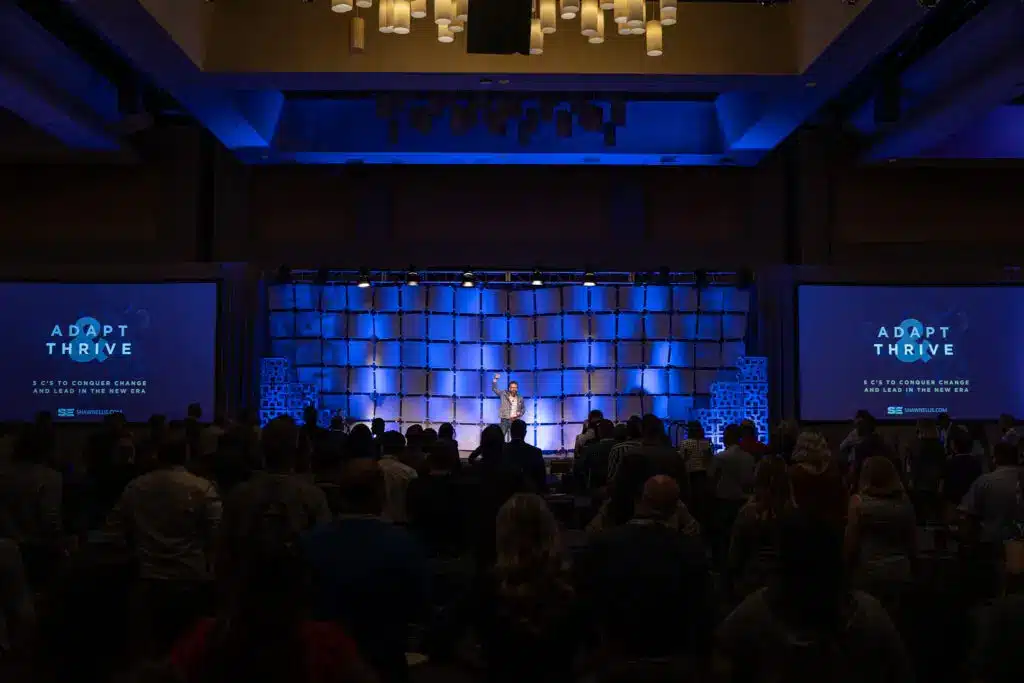
Over the past several weeks, Southwest Airlines shocked the travel world.
It wasn’t just about price changes.
It wasn’t just about policy changes.
The shock came as they ended two of the most iconic parts of their identity:
➡ Two free checked bags
➡ Open seating
For decades, those weren’t just features—they were who Southwest was.
“Bags fly free” wasn’t just a tagline—it was part of their soul.
So why end it?
Because clinging to what made you… can eventually break you.
Southwest CEO Bob Jordan said it clearly:
“The move to bag fees is really about choice.”
The world changed. Travelers changed. And if Southwest didn’t change, they’d be left behind.
That’s Radical Adaptability.
Not tweaking. Not fine-tuning.
Ending what built your success—before it becomes your downfall.
The baggage of identity
Every person, every organization, builds an identity over time.
It’s how we tell the world who we are.
But here’s the hard truth:
What once made you special… can eventually hold you back.
The Southwest story gives us a perfect metaphor:
They used to give customers the freedom to check their bags for free.
Now, that same policy became the baggage weighing down their future.
Jordan didn’t make this decision lightly. He faced the facts:
- 85% of customers who won’t fly Southwest want assigned seating.
- Flight attendants were forced to police seating disputes onboard, creating friction and frustration.
- Preboarding was out of control, slowing down boarding and eroding efficiency.
And the kicker? The new strategy is projected to add $4.3 billion in profit by 2026.
This wasn’t a whim. It was a mission-driven decision to end what no longer fit the future.
Radical Adaptability: Change before you have to
Most leaders change when they’re forced.
Radically adaptable leaders change before they’re forced.
Southwest wasn’t bankrupt.
They weren’t being shut down by regulators.
But they saw the writing on the wall:
✔ Customers demanding choice.
✔ Operational headaches draining resources.
✔ Market shifts making free bags unsustainable.
So they made the hard call.
It’s radical because:
- They weren’t forced to change yet—but they chose to.
- It goes against 50 years of brand tradition.
- It exposed them to criticism and headlines like “Southwest Abandons Its Soul…”
But here’s the truth:
If you wait until the market forces your hand, it’s already too late.
Radical Adaptability is seeing what no longer serves your mission—and having the courage to end it.
How do you know it’s time to drop the bag?
Here are a few signs your identity is ready for an update:
- You’re protecting the past instead of creating the future.
- You’re known for something that no longer solves your customer’s biggest problem.
- You’re clinging to comfort while the market evolves.
- You feel trapped in your own story.
- Your team or customers are asking for something you’re afraid to deliver.
- You feel restless, knowing there’s something more—but afraid to let go.
- You keep saying “this is who we are” instead of asking, “who do we need to become?”
If even one of those hits home, it might be time to drop the bag.
Let go to level up
Southwest made a bold move. And yes, some loyal customers will be upset.
But leadership isn’t about protecting nostalgia.
It’s about creating the future.
Bob Jordan put it this way:
“Let’s answer the question … what do customers want? And they want segmentation, they want choice, they want access to premium.”
What about you?
Where are you clinging to an old identity because it feels safe?
What could happen if you put it down?
What could you build, serve, or experience… if you weren’t carrying that heavy bag anymore?
You don’t have to reinvent your whole life today.
But you can take one moment to stop and ask:
“Who am I becoming?”
Because who you are is important.
But who you’re becoming? That’s where your future lives.
Want to learn how to practice Radical Adaptability in your life or leadership team?

Invite me to speak at your next event, or let’s design a workshop to help your team end what’s holding them back—and step into what’s next.
Let’s talk →
